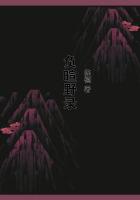A GREAT joy has come to me; one of those unexpected gifts which life loves to bestow after we have learnt to loose our grip of her.
I am back in my own place very near my road - the white gate lies within my distant vision; near the lean grey Downs which keep watch and ward between the country and the sea; very near, nay, in the lap of Mother Earth, for as I write I am lying on a green carpet, powdered yellow and white with the sun's own flowers; overhead a great sycamore where the bees toil and sing; and sighing shimmering poplars golden grey against the blue.The day of Persephone has dawned for me, and I, set free like Demeter's child, gladden my eyes with this foretaste of coming radiance, and rest my tired sense with the scent and sound of home.Away down the meadow Ihear the early scythe song, and the warm air is fragrant with the fallen grass.It has its own message for me as I lie here, I who have obtained yet one more mercy, and the burden of it is life, not death.
I remember when, taking a grace from my road, I helped to mow Farmer Marler's ten-acre field, rich in ripe upstanding grass.The mechanism of the ancient reaper had given way under the strain of the home meadows, and if this crop was to be saved it must be by hand.I have kept the record of those days of joyous labour under a June sky.Men were hard to get in our village; old Dodden, who was over seventy, volunteered his services - he had done yeoman work with the scythe in his youth - and two of the farm hands with their master completed our strength.
We took our places under a five o'clock morning sky, and the larks cried down to us as we stood knee-deep in the fragrant dew-steeped grass, each man with his gleaming scythe poised ready for its sweeping swing.Old Dodden led by right of age and ripe experience; bent like a sickle, brown and dry as a nut, his face a tracery of innumerable wrinkles, he has never ailed a day, and the cunning of his craft was still with him.At first we worked stiffly, unreadily, but soon the monotonous motion possessed us with its insistent rhythm, and the grass bowed to each sibilant swish and fell in sweet-smelling swathes at our feet.Now and then a startled rabbit scurried through the miniature forest to vanish with white flick of tail in the tangled hedge; here and there a mother lark was discovered sitting motionless, immovable upon her little brood; but save for these infrequent incidents we paced steadily on with no speech save the cry of the hone on the steel and the swish of the falling swathes.The sun rose high in the heaven and burnt on bent neck and bare and aching arms, the blood beat and drummed in my veins with the unwonted posture and exercise; I worked as a man who sees and hears in a mist.Once, as I paused to whet my scythe, my eye caught the line of the untroubled hills strong and still in the broad sunshine; then to work again in the labouring, fertile valley.
Rest time came, and wiping the sweat from brow and blade we sought the welcome shadow of the hedge and the cool sweet oatmeal water with which the wise reaper quenches his thirst.Farmer Marler hastened off to see with master-eye that all went well elsewhere;the farm men slept tranquilly, stretched at full length, clasped hands for pillow; and old Dodden, sitting with crooked fingers interlaced to check their trembling betrayal of old age, told how in his youth he had "swep" a four-acre field single-handed in three days - an almost impossible feat - and of the first reaping machine in these parts, and how it brought, to his thinking, the ruin of agricultural morals with it."'Tis again nature," he said, "the Lard gave us the land an' the seed, but 'Ee said that a man should sweat.Where's the sweat drivin' round wi' two horses cuttin' the straw down an' gatherin' it again, wi' scarce a hand's turn i' the day's work?"Old Dodden's high-pitched quavering voice rose and fell, mournful as he surveyed the present, vehement as he recorded the heroic past.He spoke of the rural exodus and shook his head mournfully.
"We old 'uns were content wi' earth and the open sky like our feythers before us, but wi' the children 'tis first machines to save doin' a hand's turn o' honest work, an' then land an' sky ain't big enough seemin'ly, nor grand enough; it must be town an' a paved street, an' they sweat their lives out atwixt four walls an'















